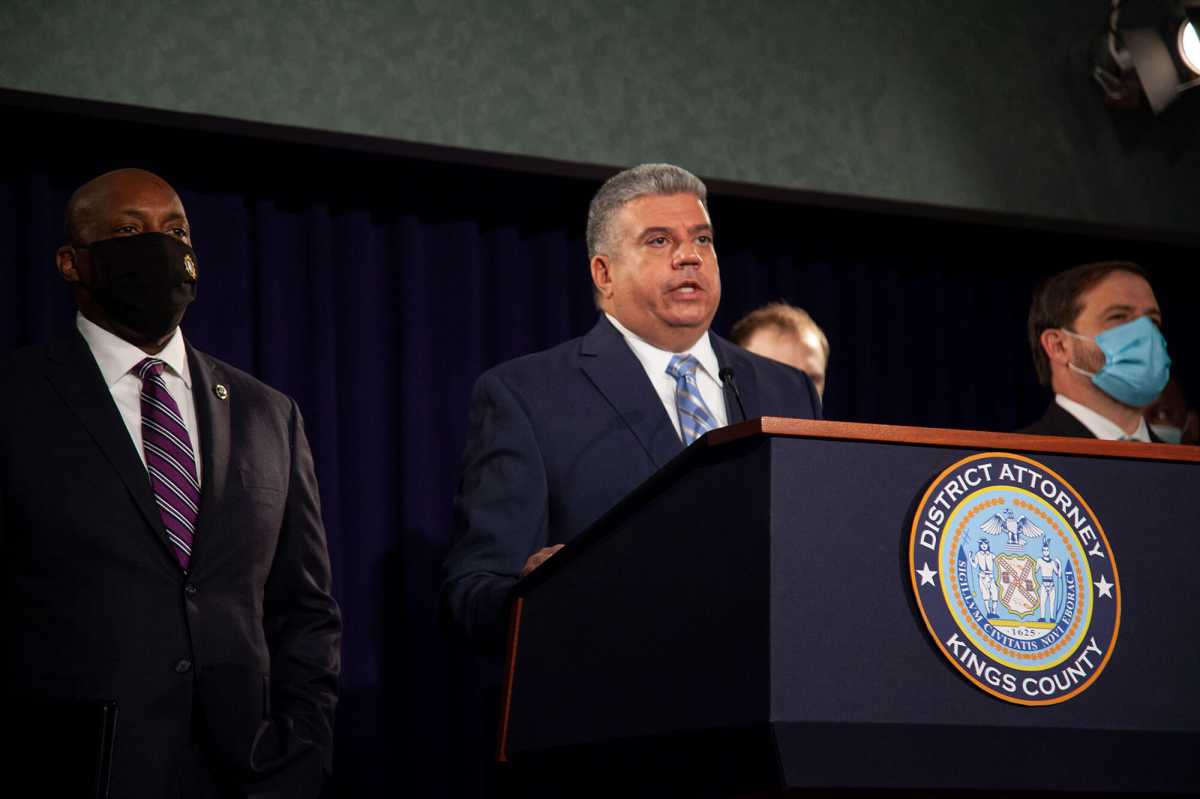Brooklyn District Attorney Eric Gonzalez is moving to dismiss hundreds of sex work-related warrants and pushing state lawmakers to take broader action to help reduce the criminalization of sex workers.
The office said it vacated and dismissed 262 warrants issued since 2012 — including 183 warrants tied to Penal Law 230, which is the basic charge for sex work, and 79 for the loitering law commonly known as a ban on Walking While Trans because it is used to target transgender women.
The office also vowed to dismiss 850 more years-old warrants going as far as back as the 1970s. The DA said those cases are not accessible during the COVID-19 pandemic, but Gonzalez voiced a commitment to dismiss those warrants when he is able to do so.
Gonzalez is also asking the state to pass a bill that would help expunge more than 25,000 convictions in Brooklyn for more sex work-related charges dating back to 1975.
It is not clear whether any of the warrants getting dismissed extend to buyers and others who have faced sex work-related charges for facilitating sex work. Advocates for sex work decriminalization have long made it clear that comprehensive sex work decriminalization efforts must include easing the laws for workers, buyers, and those who help facilitate sex work. It is likely that many of the warrants were also tied to individuals who were not engaging in sex work, but were still targeted — especially those arrested for Walking While Trans. Gonzalez urged state lawmakers to repeal that law, which is likely to be gutted in the week ahead.
This announcement comes nearly two years after Gonzalez endorsed the decriminalization of sex work while attending a meeting for Lambda Independent Democrats (LID) of Brooklyn, an LGBTQ political club.
In his latest move, Gonzalez pointed to his office’s policy, established in 2020, that refers those arrested for sex work charges to services and aims to dismiss those charges before the individual is required to appear in court. He claims that cases are tossed regardless of whether individuals are willing to cooperate with services.
While he claims that his office no longer prosecutes sex work-related charges, he said his office processed fewer than 30 cases last year.
“I decided to take this action for several reasons: first and most obviously, it doesn’t make sense for someone to have an outstanding warrant for something we no longer prosecute,” Gonzalez said in a written statement. “But beyond that, these warrants have powerful negative consequences for the individual, and they undermine public safety.”
Plus, having an open warrant can cause several challenges later on in life: Individuals are doubly scrutinized when seeking employment and housing, and their safety is more at risk. Gonzalez acknowledged a point that has long been emphasized by sex workers — that criminalization does not bolster safety.
“Because someone with an open warrant is subject to arrest at any time, those engaged in the selling of sex are more likely to be driven underground and be less likely to report abuse or other crimes, which makes both them and others less safe,” Gonzalez said. “An outstanding warrant could show up years after it was issued in a background check for an apartment rental or a job application, hamstringing someone’s ability to move on from their past to a more stable and less dangerous way of life.”
In 2019 the DA released his Justice 2020 plan, which aimed to reduce incarceration and improve equity in how the office handles cases.
“Vacating these warrants and dismissing these cases is consistent with my view that those who engage in these activities need to be offered assistance, not criminally prosecuted,” Gonzalez said in a statement. “I am asking the legislature to expunge past prostitution convictions so they will not hold people back from opportunities for a better future.”
To sign up for the Gay City News email newsletter, visit gaycitynews.com/newsletter.






































